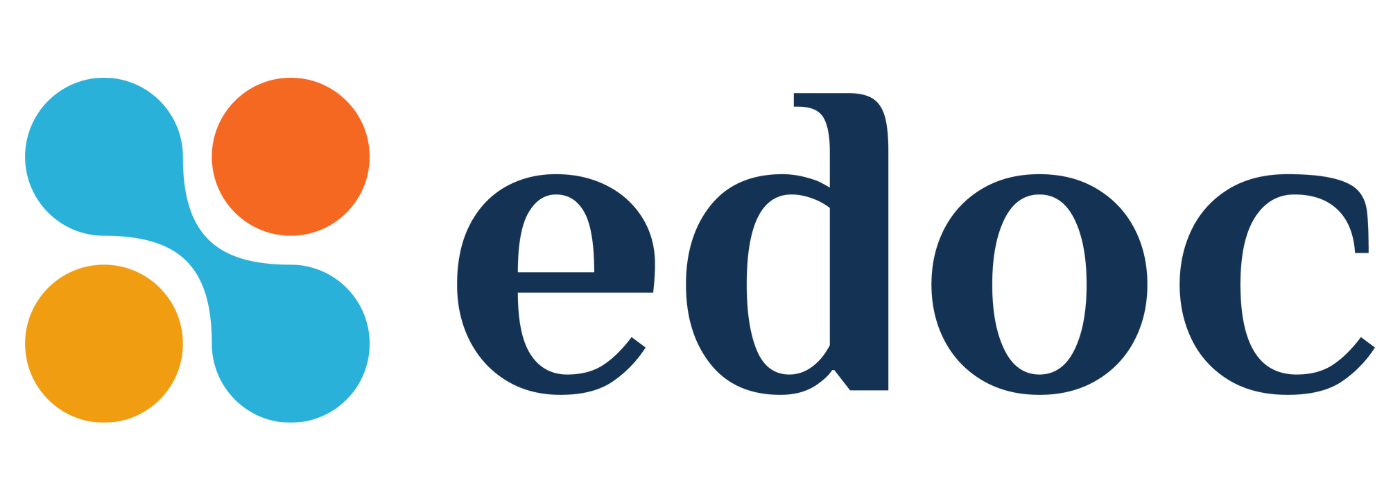James Clear Shares 3 Tips with Edoc on Habit-Forming for Remote Workers
At Edoc, we consider ourselves lifelong learners of entrepreneurialism and leadership.
That’s why we interviewed writer, entrepreneur and travel photographer James Clear, who spoke with us about three insights into building quality habits for any (remote) worker looking to find more meaningful productivity.
On his site, JamesClear.com, James writes about how we can become better leaders, better workers and better overall people, and how improving our health can help us achieve our goals.
James has been featured in everything from Entrepreneur.com, to Fast Company, to Lifehacker. In any given year, he has more than 3 million readers across all his publications combined.
Here are three approaches every entrepreneur needs to take into consideration to live a healthier and more productive life.
1. Don’t cheat yourself of sleep.
Instead of viewing sleep as a luxury, start thinking of it as a necessity.
“I think it is a popular notion, or a sexy notion, that entrepreneurs are working all hours of the day to launch a product…or that they have to out-hustle everyone,” points out James.
James could work non-stop himself, but he’s learned that the problem with this mindset is that it’s simply not sustainable.
Consider implementing a reverse alarm clock, where when it goes off in the evening, you put your work away, no matter the work you’re doing.
If implemented correctly, we must then focus on what matters most. “In the long run, that pays off in a really big way for my productivity and efficiency,” explains James.
2. Plan and commit to your workouts, then switch your focus back to more important tasks.
Take your desired training/fitness schedule. For James, it might be Monday, Wednesday, and Friday that he trains. He puts it down in the books, and then doesn’t think about it again (for the most part) until that scheduled time comes up.
Whether or not he does it for this reason, there’s no wasted energy on over-thinking his next workout, and it’s less likely to let current feelings or your mood get in the way of what we should be doing.
For James, he knows he’s going to show up at the gym at those times—it’s just that simple once it’s been decided. “Then I naturally have more energy and more focus,” he says. I know for me, once it’s scheduled, treating it as if it is a business appointment makes sure you show up.
3. Focus less on predicting future outcomes when goal-setting.
Have a goal you want to achieve in the near feature? I thought so!
Instead of focusing on a very specific outcome, such as “lose 20 pounds in 6 weeks,” we must look at the entire system we have in place that leads to those end goals.
For the entrepreneur or business owner, it’s the sales and marketing framework (and execution) that you’d be following to get to increased sales.
For the person trying to lose weight, it’s your plan of how you’re going to eat, including preparation, as well as how you’re going to approach workouts. It would also include your plan and day-to-day approach for overcoming any psychological barriers in your way as you go about changing your habits for good.
If you focus less on the “lose 20 pounds in 6 weeks” type of outcome, and more on the day-to-day implementation, you will set yourself up to achieve your goal as best you can.
So what’s the best of both worlds when it comes to systems versus specific goals?
The positives of what comes with creating and setting a goal—a clear sense of purpose, a clear alignment with your mission—are clearly optimal, so those should not be forgotten, explains James.
But outside of that, at the end of the day, many of us are setting a goal where we’d be better off if we simply focused on optimizing the entire system that’s driving us towards our goal.
It also turns out if we make this shift, we’re more likely to feel happier and more satisfied “in the now.”
Instead of always seeing happiness coming only when we achieve some specific end result (“I’ll be happy as soon as…”), we’re better able to embrace our lives as they are in the present.
